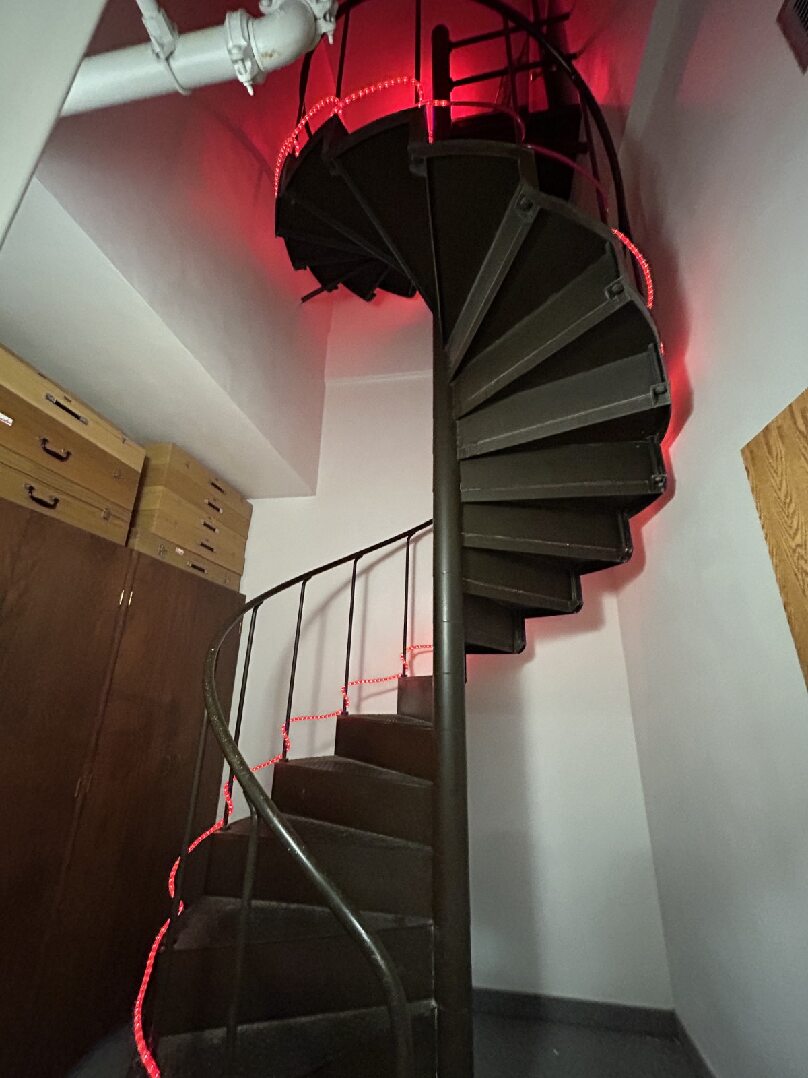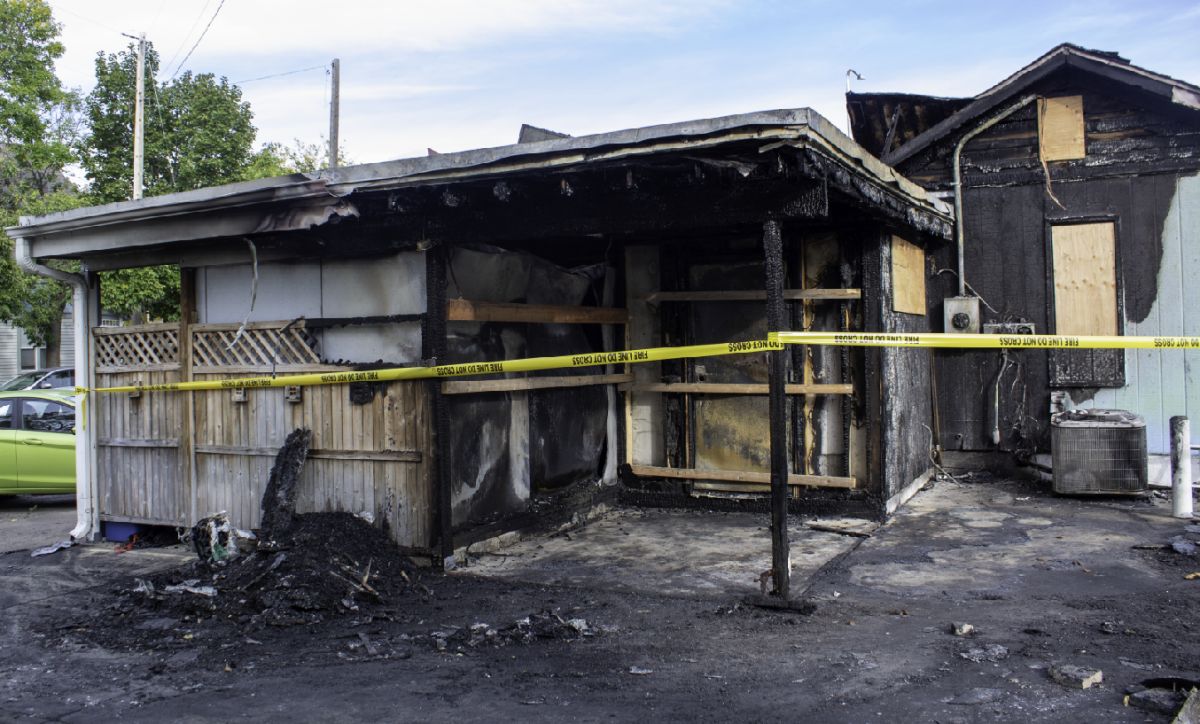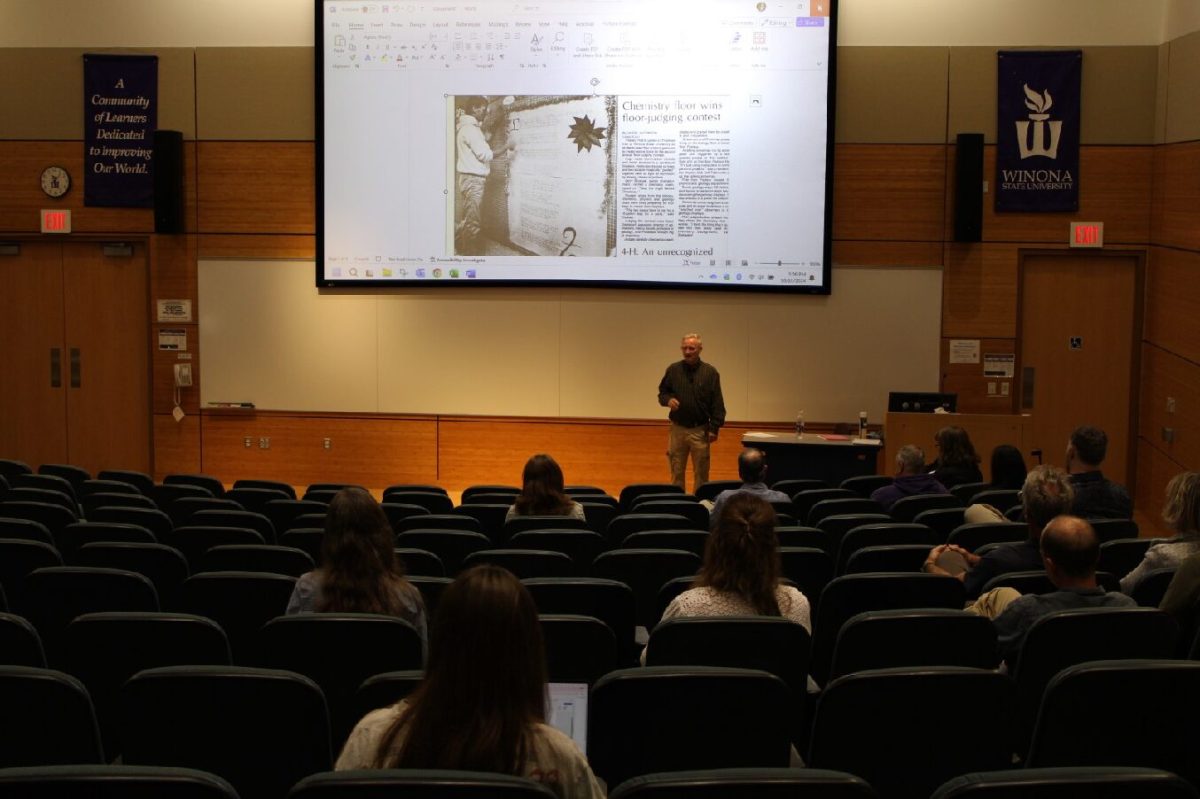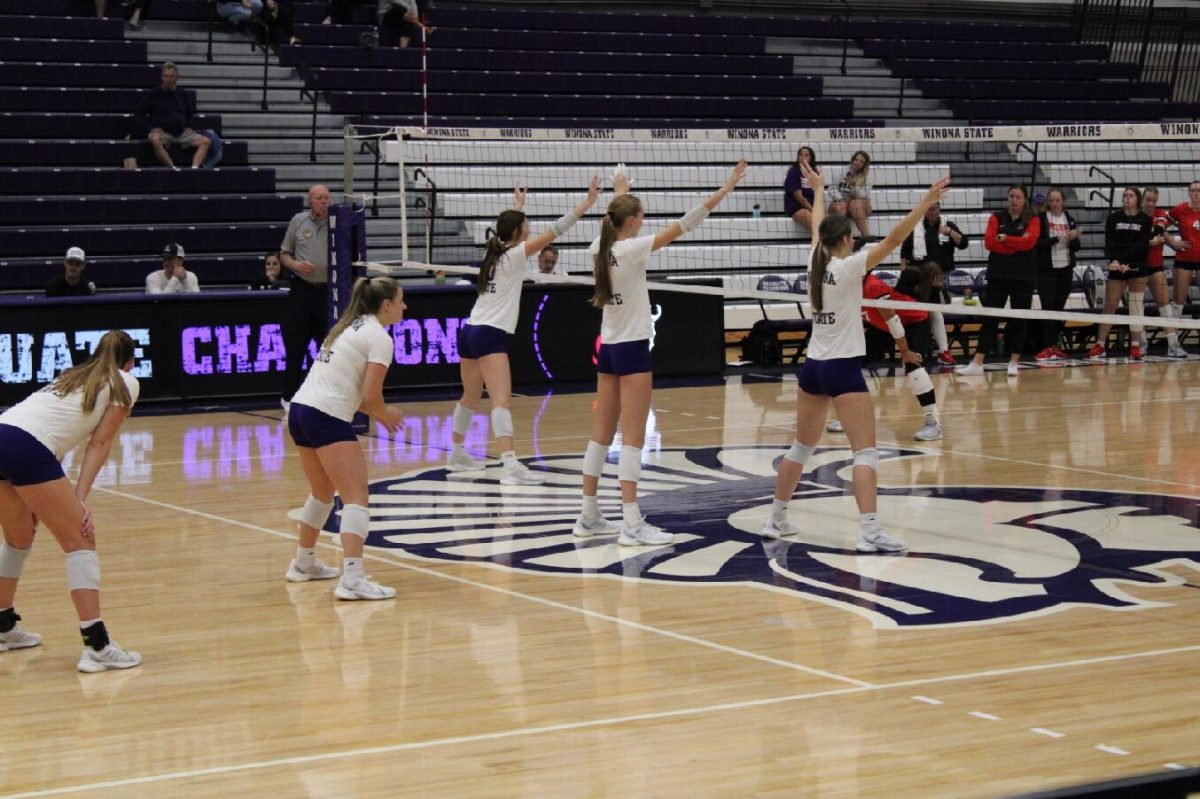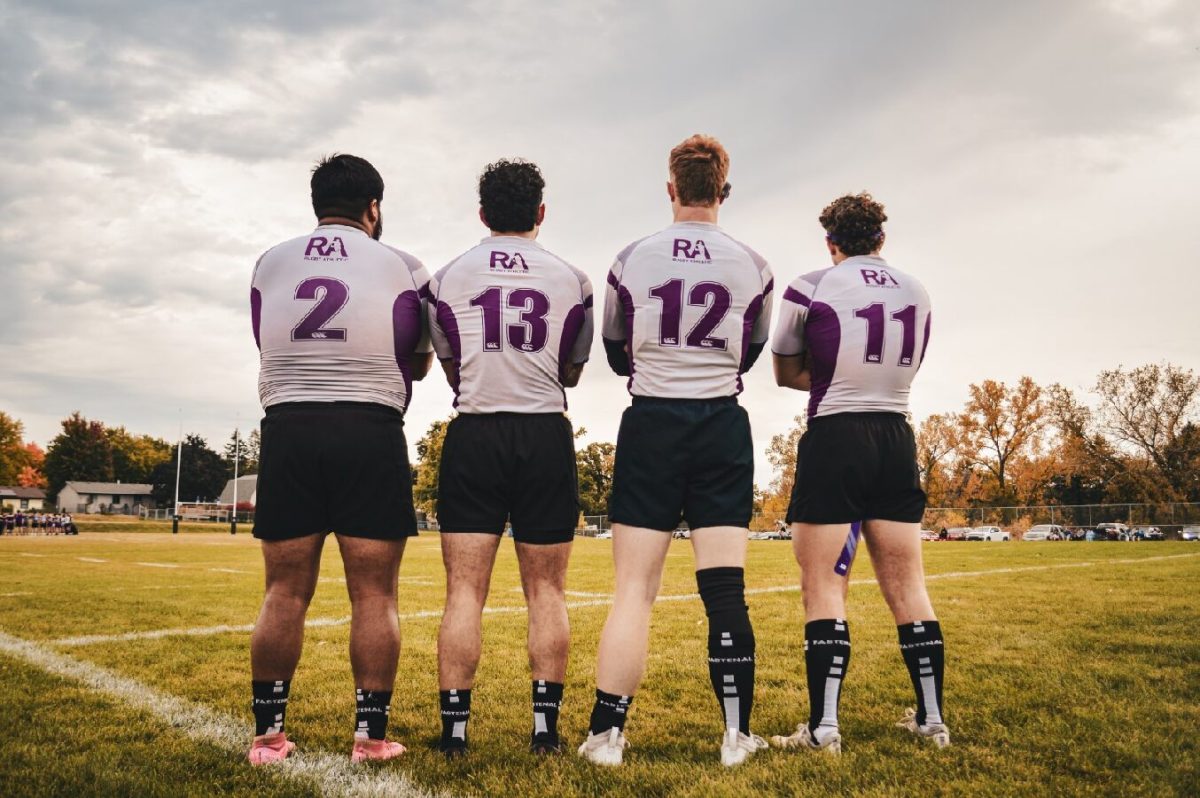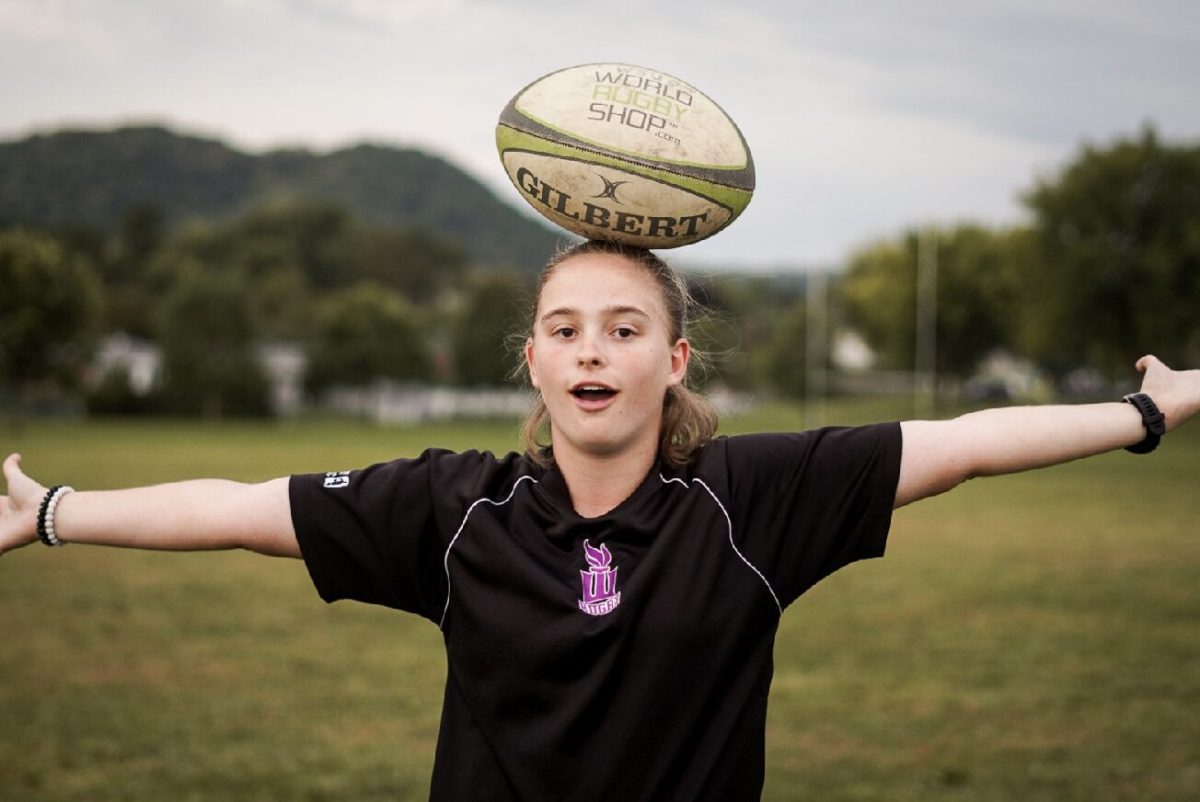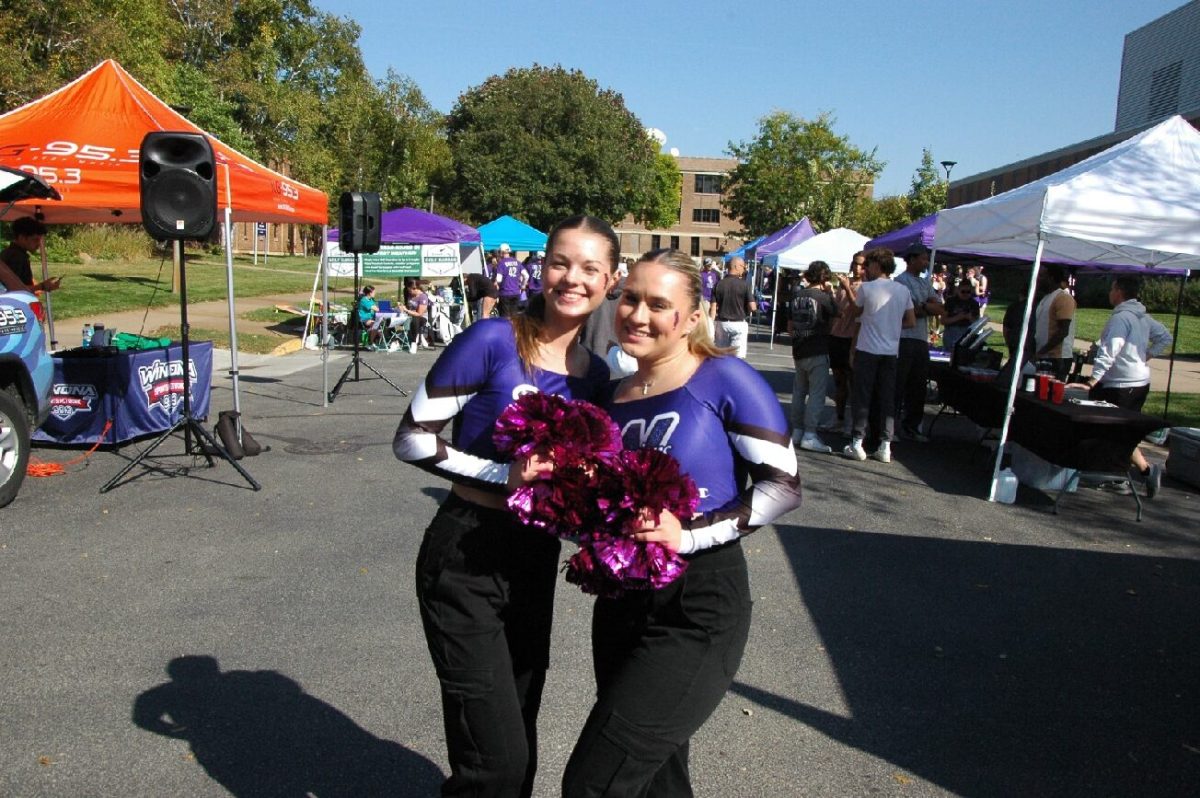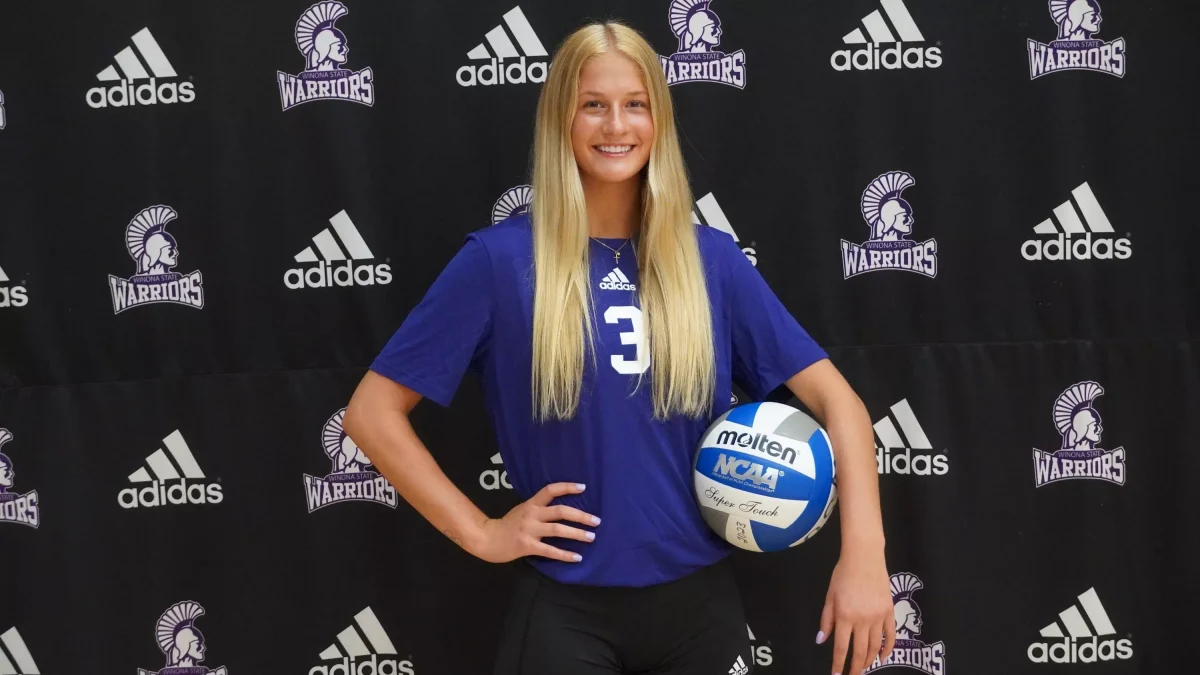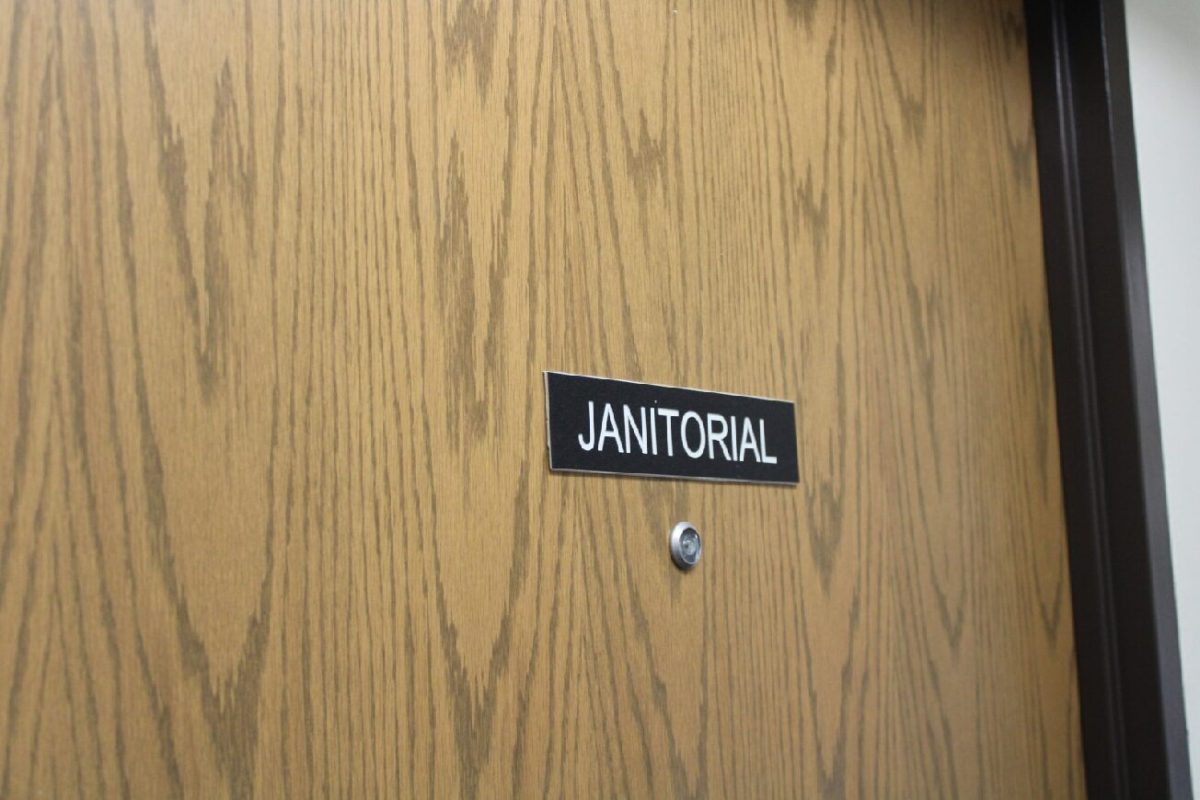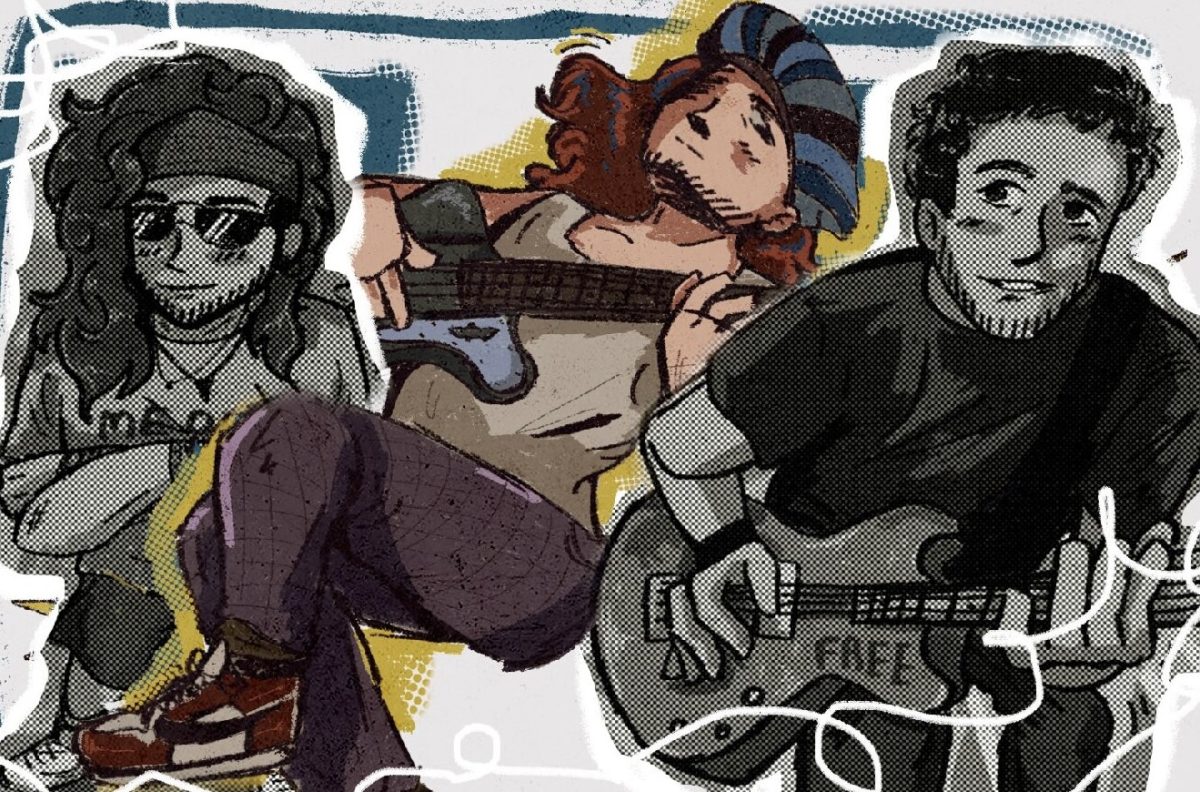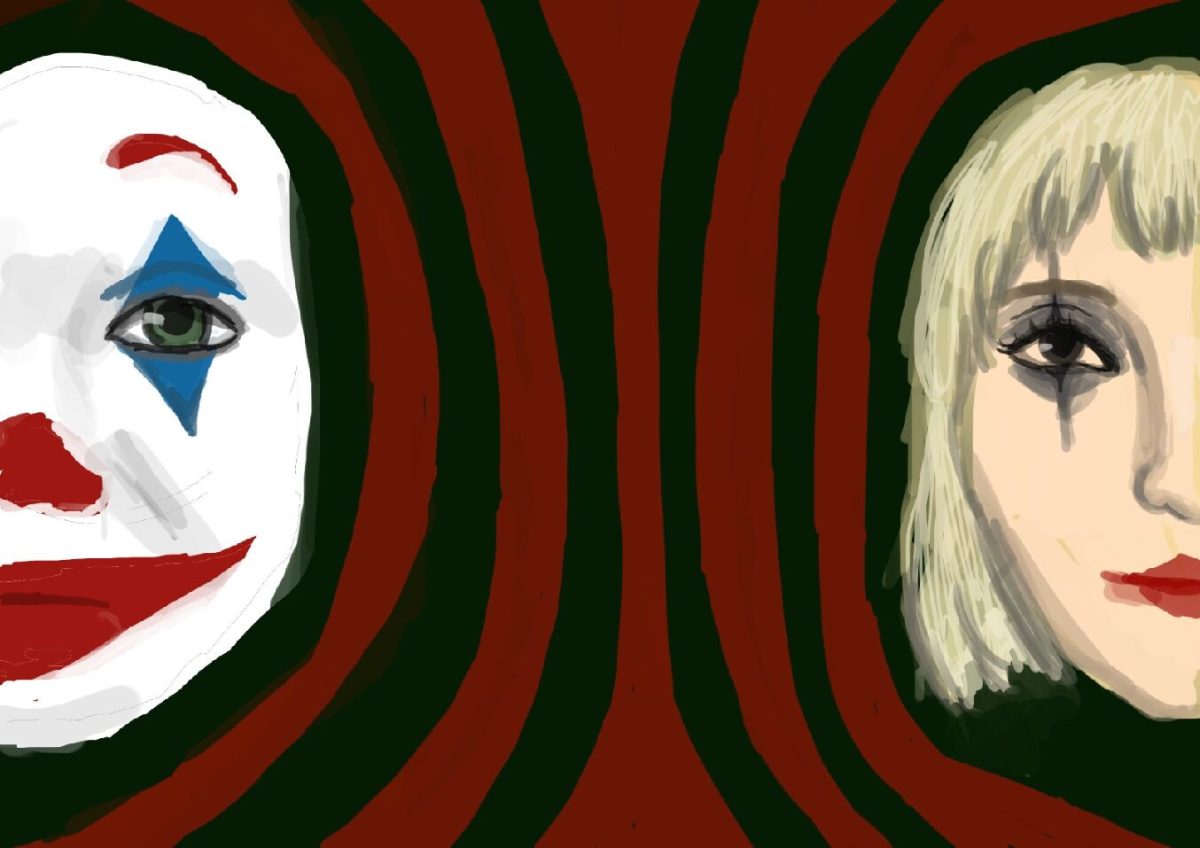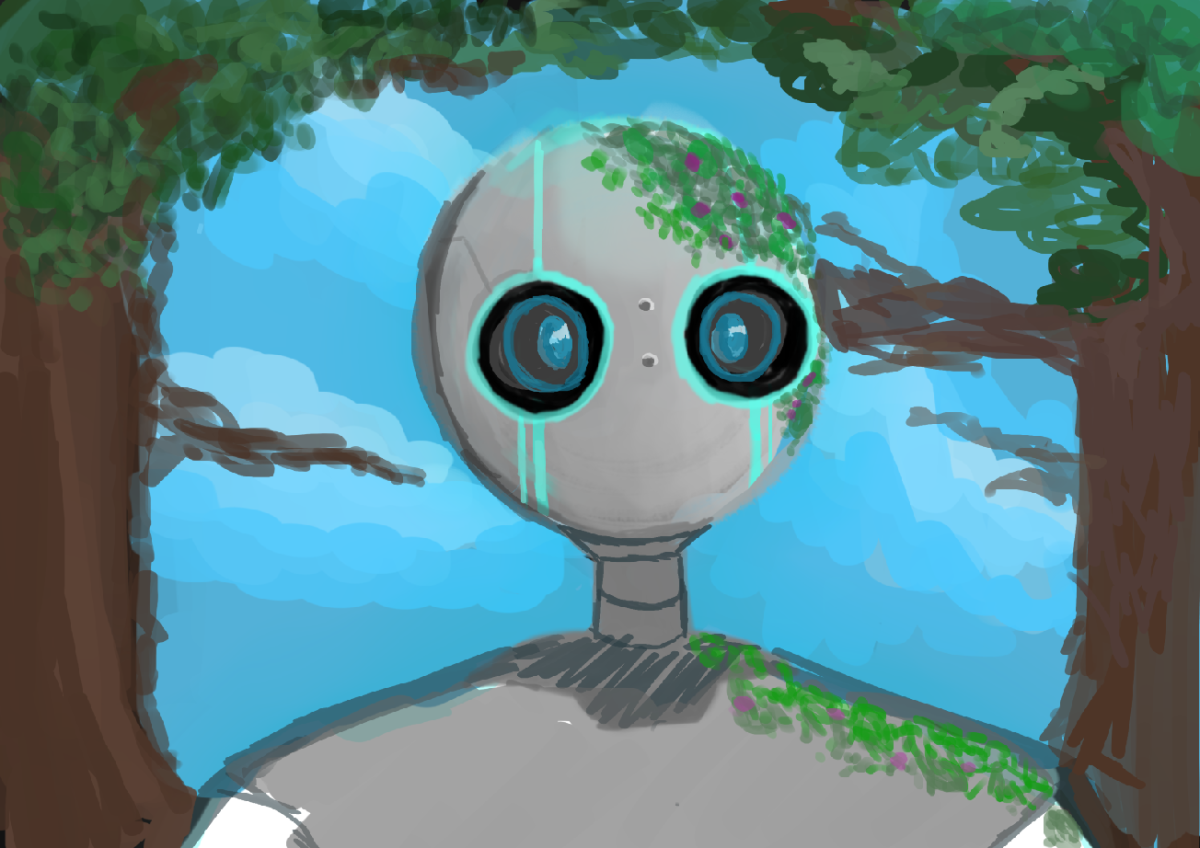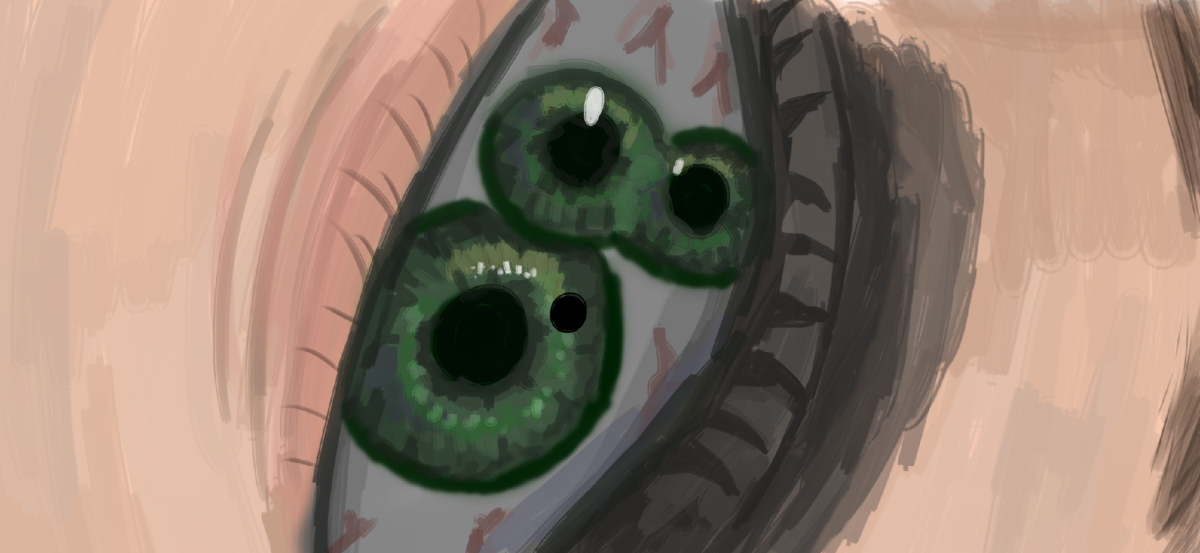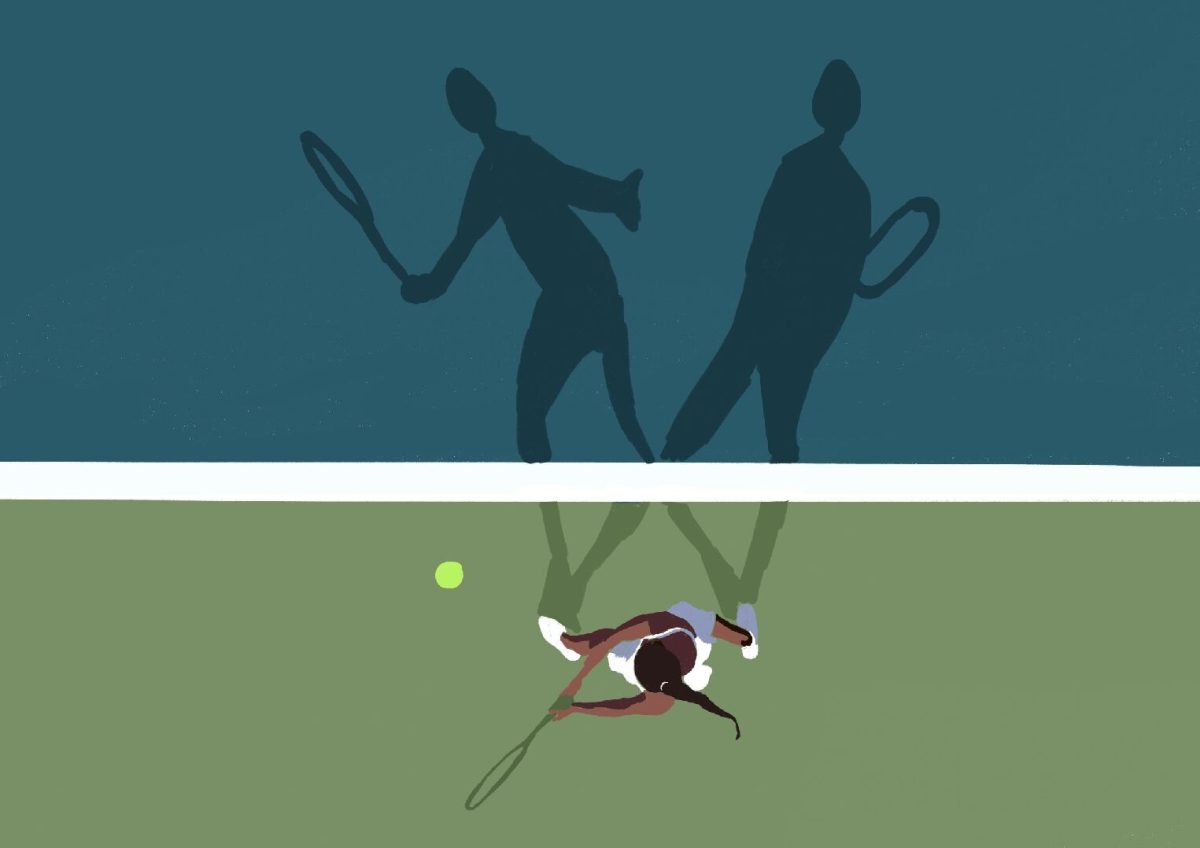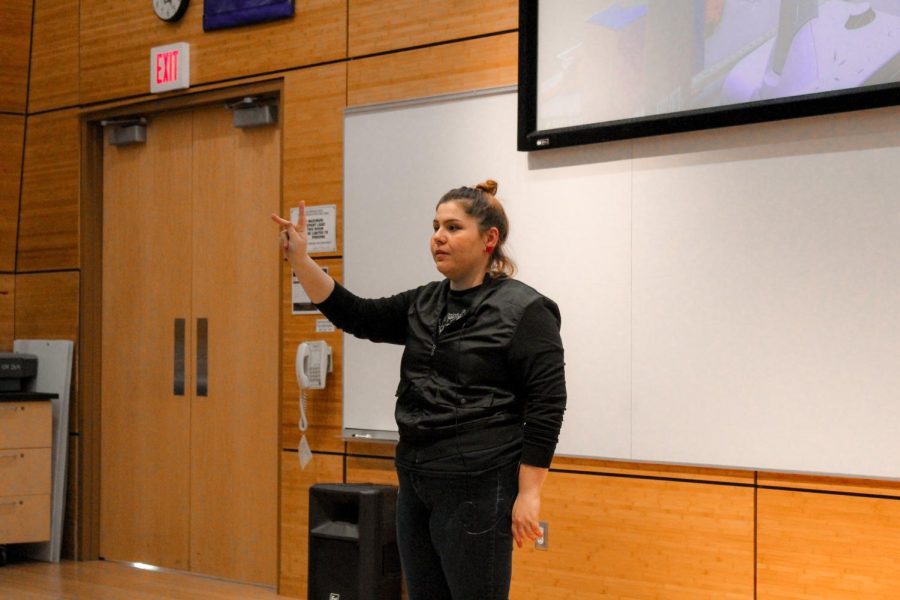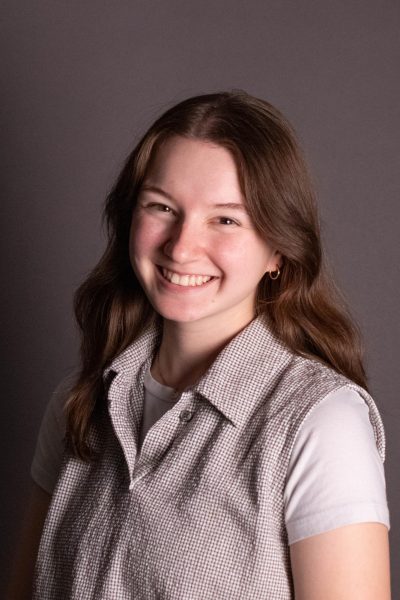“GaySL” expands perspectives through intersectionality
On Oct. 5th, Hayden Kristal visited Winona State University to participate in this year’s Expanding Perspectives Series. Kristal’s provides activism as a person who is deaf, bisexual, and Jewish with their stand-up comedy performance of GaySL: A Lesson in Intersectionality.
October 10, 2022
On Wednesday, Oct. 5, 2022, Hayden Kristal performed “GaySL” in the Science Laboratory Center auditorium. Hayden Kristal is a deaf, bisexual, Jewish queer activist and stand-up comedian. They have appeared on a variety of platforms, including TEDx, standup NBC and the newest season of America’s Got Talent.
Kristal has traveled to perform all over America and has won multiple awards for their comedic and educational presentations. At Winona State University, Kristal kicked off this year’s Expanding Perspectives Program event series. “GaySL” touched on specific American Sign Language (ASL) signs for LGBTQ terms, ASL in general and intersectionality.
The term “intersectionality” was coined by Kimberlé Crenshaw, civil rights advocate and scholar of critical race theory in 1989. Intersectionality is the idea that an individual’s multiple identities (race, gender, sexuality, ability, etc.) cross over each other to create multiple different forms of oppression and discrimination. Emphasis is placed on the idea that everyone has different and distinct experiences in the world based on these identities.
Yeejsuab Nahla Lee, intercultural & completion coordinator in the Office of Equity & Inclusive Excellence and primary coordinator of the Expanding Perspectives Series, discussed the importance of learning about intersectionality, especially in college.
“Learning about intersectionality allows us to communicate better and respectfully with our peers, not only in a college setting, but also in our personal lives, and helps us understand the ways in which diversity, inclusion, and equity are important to us and our community,” Lee stated.
Kristal started the presentation by signing in silence for about fifteen seconds before stopping abruptly and saying “I’m totally kidding. Not about the sign language part, that is totally real!” Their quick-witted jokes and rapport with the audience sent the audience into laughter a countless number of times throughout the presentation.
Before moving into the ASL alphabet, Kristal made sure to state that no questions asked by the audience during the presentation were dumb questions; they did a very good job creating a safe and educational space to ask questions about American Sign Language, LGBTQ related experiences or intersectionality.
Kristal, being 90 percent hard of hearing and without an interpreter for the night, worked directly with the audience to answer these questions. They requested that people asking questions make direct eye contact with her and work with other people to make sure the question could be answered properly; it was a great learning experience for everyone involved, and definitely brought the audience together throughout the performance.
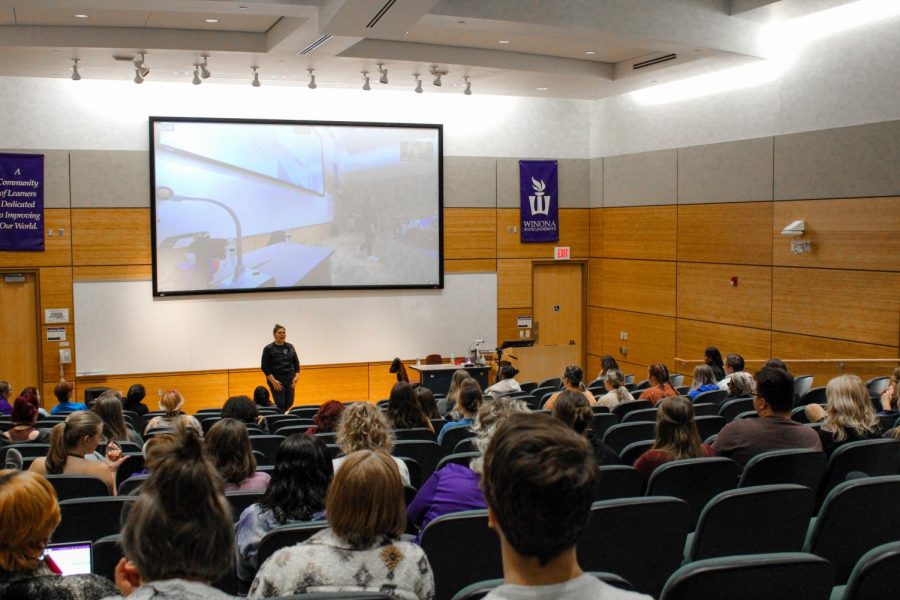
After learning the American Sign Language alphabet, Kristal moved on to teach the audience each sign for each letter in “LGBTQ+,” which stands for “lesbian,” “gay,” “bisexual,” “transgender” and “queer.” Kristal made a point to go through each identity thoroughly, providing different options for each sign and the potential changes that can be made to each sign depending on the region. One of the most interesting signs to learn was the sign for “transgender,” which Kristal stated to be one of the most agreed upon signs regarding LGBTQ words and language.
“I’ve seen almost zero variations in this, which is amazing,” Kristal said. “Because until fifteen-ish years ago, there really wasn’t one standardized sign for transgender.”
One of the more emotional topics that Kristal covered was the use of the word “queer” in different social settings. In their highschool years, Kristal viewed the word “queer” as being reclaimed by the LGBTQ community, as they lived in a larger city area.
“I’m chronically online, so I had learned the word queer,” Kristal stated. “You know, I knew it used to be a slur back in the day, but it had been reclaimed. And now it’s just a good, fun neutral umbrella term for everybody; especially my age, right?”
However, after speaking to a friend of theirs who lived in a more rural area, Kristal realized that not every area treats the word “queer” as a reclaimed umbrella term, but still employs it as a slur; their friend had a “radicially different experience” growing up, despite going to the same high school.
“It’s a slur that had been used to hurt her time and time again, right?” Kristal said. “It was incredibly painful for her. And so I started this workshop, the baby version of GaySL.”
This statement went hand-in-hand with another idea Kristal brought up later; when it comes to intersectionality, marginalized groups and not having the awareness of specific levels of oppression in your area, there comes the possibility of saying or allowing prejudiced statements and ideas. What is important in this process is learning from potential mistakes and focusing on the opportunity for growth.
“The problem is you can’t change what you don’t acknowledge, which everybody always nods very deeply at,” Kristal said. “But it’s a quote I stole from Dr. Phil. So that’s the issue, right? You can’t change what you don’t acknowledge.”
Overall, Hayden Kristal did an amazing job at entertaining, engaging, including and entertaining the audience that came to see them last Wednesday. Ideas of intersectionality, intersectional accessibility, equity and language regarding disability and LGBTQ related conversation were discussed thoroughly, while comedic energy was maintained throughout all 90 minutes.
The Expanding Perspectives Series has two more events, one coming up on Oct. 12. All events in the Expanding Perspectives Series are free for students and non-students; information regarding these events are on the Winona State Equity and KEAP Center instagram.
“It’s an opportunity to break out of your comfort zone and learn in a new environment and garner new knowledge and perspectives,” Lee stated. “We are all lifelong learners and learning doesn’t only take place in a classroom nor does it have to.”

